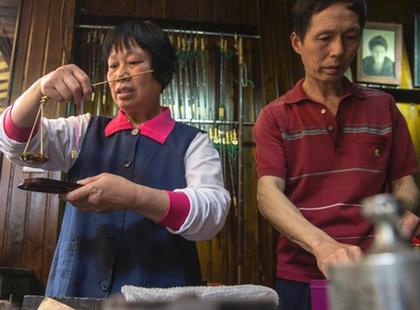Chinese investors on course for future economic boom in Cuba
Updated: 2015-05-23 07:46
By Zhang Yuchen(China Daily USA)
|
||||||||
A golf course that will be the first to be built in Cuba by a Chinese enterprise, stands to benefit from the lifting of a longstanding economic embargo on Cuba imposed by the United States, and draw more tourists, as China and Cuba expand bilateral trade.
Chinese investors have been interested in building new golf courses in the Caribbean. The Cuban golf course to be built by Chinese entrepreneurs is the first of such tourism projects on the island nation, following the recent signing of an agreement between Cuba and the Chinese investors.
The 18-hole golf course is the second proposed golf course in the Latin American country. In 2013, a British company began construction of a multi-billion dollar golf resort project on the island.
Cuba plans to build a total of 12 golf courses, with Russia, Vietnam, and Japan all hoping to be a part. The US is reportedly also interested in investing in such future projects. The U.S. is currently in negotiations to re-establish full diplomatic relations with Cuba and lift the more than half-century old economic embargo.
It is estimated that the number of the tourists that will flock to Cuba could double next year because of the prospects of removing Cuba from the list of state sponsors of terrorism. That reportedly will happen on May 28.
Heads of Western countries, such as French President Francois Holland, who recently became the first French president in more than 100 years to visit Cuba, are eager to get their piece of the Cuban economic pie. Hotels in Cuba in tourist areas have been fully booked. With the embargo gone, more hotels and tourist businesses can be expected.
"(It is) a great opportunity when the US and Cuba are trying to normalize relations and re-build the embassies in each other’s countries and the relations between the two parts of the world have been warmed up," said Xu Shicheng, deputy director of the Chinese Society of Latin American Studies.
The current lack of tourism facilities will be the only obstacle standing in the way of tourism blossoming in Cuba. Many Chinese entrepreneurs have expressed great interest, according to Ma Keqiang, economic and commercial counselor at the Chinese embassy in Cuba.
Ma said that the bilateral trade volume between China and Cuba in 2013 reached $1.88 billion, and that China's main exports to Cuba include machinery, automobiles, household appliances, consumer goods, and the imports of sugar, nickel and biological medicines from Cuba.
Data show that Cuba is China's largest trading partner in the Caribbean, and that China is Cuba's second largest trading partner in the world.
All foreign companies, however, face major challenges in doing business in Cuba, such as labor practices, dual currency systems, weak infrastructure, limited internet and telecom capacity, and little consumer capital, said Ted Piccone, a senior fellow with the Project on International Order and Strategy and Latin America Initiative in the Foreign Policy Program at Brookings.
"Normalization should reduce tensions in the region, foster stability, improve rule of law, and encourage stronger economic growth," Piccone said. "This should be positive for US-Sino relations but direct competition or confrontation in the Caribbean would be negative."
More than 2 million Cubans live in the United States and American businesses should have a comparative advantage on the island in terms of language, culture, geography and family ties.
Said Piccone: "Looking forward, there should be more common interest for all three countries in helping Cuba develop in ways that will improve living standards for the Cuban people and help them develop freely and independently, with respect for international standards of human rights, transparency and rule of law."

 Colombia: A birdwatcher's paradise
Colombia: A birdwatcher's paradise
 Journey of a migrant girl from village to ad world
Journey of a migrant girl from village to ad world
 Photographer captures Chinese on the train
Photographer captures Chinese on the train
 Hou Hsiao-Hsien's The Assassin premieres in Cannes
Hou Hsiao-Hsien's The Assassin premieres in Cannes
 Top 10 highest-paid white-collar jobs in China
Top 10 highest-paid white-collar jobs in China
 The dying craft of balance scales
The dying craft of balance scales
 Culture Insider: Six things you may not know about Grain Buds
Culture Insider: Six things you may not know about Grain Buds
 Premier Li rides on new China-made train in Rio de Janeiro
Premier Li rides on new China-made train in Rio de Janeiro
Most Viewed
Editor's Picks

|

|

|

|

|

|
Today's Top News
Li: 'Great potential' for Sino-Colombian ties
Beijing responds to surveillance by US plane
Beijing sets out its rights after reports of incursion
China may have edge in race to build California's bullet train
US Senate votes to move forward fast-track trade legislation
Colombia runs into infrastructure bumps on road to prosperity
Premier Li arrives in Bogota to start official visit to Colombia
China is a global leader in renewable energy: Panel
US Weekly

|

|







